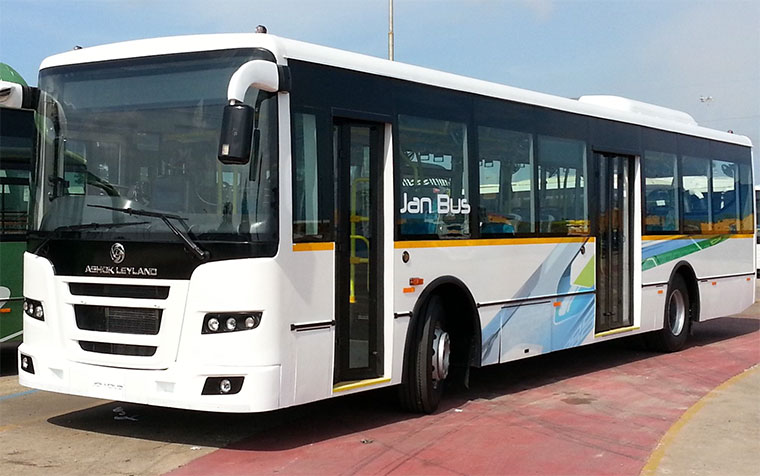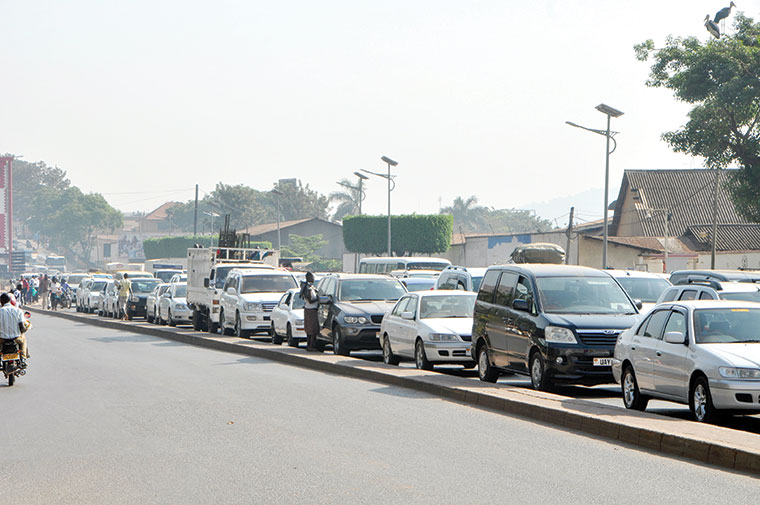he cutthroat transport sector business in greater Kampala has burnt the fingers of several investors, most notably the Pioneer Easy bus. However, the impending importation of 980 buses called Tondeka Metro from India may solve this traffic nightmare in the city, writes HASSAN MUKWAYA.
Patrick Bitature, the chairman of the Private Sector Foundation Uganda, once complained that he had spent less time to drive from Tororo to Mukono than covering the stretch between Mukono and the City center. To put this into perspective, Tororo to Mukono is 188km while Mukono to Kampala is just 20km.
Mukono municipality MP Betty Nambooze claimed recently while on a radio talk show that she had almost missed an Iftar dinner at Lord Mayor Erias Lukwago’s home in Lubaga due to traffic. Like Bitature, Nambooze had spent more than three hours on the road.
Due to traffic jams in Kampala, Uganda’s economy loses over Shs 2.8 trillion every year, according to estimates from experts. It is something that needs to be sorted. Part of the solution to decongest greater Kampala is in creating a mass bus transit system.
Because of the unreliability of 14-seater taxis that dominate public city transport, a lot of Ugandans prefer to drive their own cars. On average, a car transports only two people within Kampala and is parked for eight hours a day. It is expensive for most city workers to drive their own cars but they don’t have many options.
“All the money I earn actually goes to transport. I work in Nakawa but I live with my parents in Kyengera. I have looked for houses around Nakawa but they are very expensive. So, for now, I am only working to gain experience. My parents have to supplement my income for me to survive,” says Rhona Atuhaire, a recent graduate.
She says that if there was reliable transport, she would be able to save money.
“I traveled to Europe sometime back for a conference and I was amazed at their transport systems. You swipe a card and move. Can’t we have such systems here?” she wonders.
People like Atuhaire, Bitature as well as Nambooze may soon be able to celebrate as the government, through its investment arm, Uganda Development Corporation (UDC), has finalized plans for the importation of 980 buses from Ashok Leyland in India to solve this traffic nightmare in the city.
The buses will be known as Tondeka Metro and should be fully operational in six months, according to Peter Kimbowa, the board chairman of Tondeka Metro.
“We have received the necessary approvals. The president met the owners of the Hinduja Group who make Ashok Leyland buses and directed the Finance minister [Matia Kasaija] to fast-track this. We have already embarked on the implementation of the project,” said Kimbowa, who is also a management consultant.

The buses will operate on the major roads from Kampala to Mukono, Entebbe, Nsangi, Buloba, Kyengera, Matugga, Wakiso, Gayaza, Namugongo, Luzira, Ggaba, Ntinda, Northern Bypass, Munyonyo, and others. There will also be terminals in the major towns on each route where people could park their cars and board buses or where taxis could wait for them.
The buses will not require parks in the central business district (CBD) like it is today with taxis. They will be moving at set times, using the pick-and-drop system, whether they are full of people or not. Customers will be required to pay for a daily, weekly or monthly rate electronically and receive smart cards which they will swipe to gain access. The distance covered won’t matter. A whole day trip will be Shs 3,500, weekly Shs 17,000 while the monthly rate will be Shs 55,000. Payments will be prepaid.
However, if a passenger is interested only in a single journey – say from Mukono to Kampala – they will part with Shs 1,200. Meanwhile, Mustapha Mayambala, the chairperson of Uganda Transport Development Agency (UTRADA), has welcomed this initiative.
“I am sure Tondeka Metro is good for us and we should support them. A decongested city is good for us. And some of our members should be able to get jobs. They are experienced people in the transport sector,” he said.
Gad Mugisha, the chairperson of the Taxi Owners Association (TOA), said: “this is a good development and we shall find a way to fit in.”
Kimbowa said that Tondeka Metro will employ over 8,000 people directly and approximately 20,000 indirectly. There will be a workshop, expatriate technical support, spares, ticketing system and bus stages (turnkey project). “We will have a management team and support staff, drivers, mechanics, supervisors, traffic marshals and many more,” Kimbowa revealed.
Hinduja Group, one of the biggest bus manufacturers in the world, has established similar mass transit bus systems in other cities in the world. Charles Magumba, the town clerk of Entebbe, also welcomed this initiative. In a recent stakeholder meeting in the ministry of transport, he said it was long overdue.
The Tondeka Metro bus is a city-spec bus with a capacity of up to 90 people at any one time and with a prepaid fare. City workers like Atuhaire should be able to save some money.
This article was first published by the Observer




